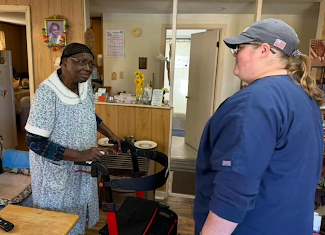By Heather Close, The Rural Blog
Independent pharmacies have long served as a vital resource for rural and underserved communities. Despite their contribution to regional health, many are facing financial stress or have closed.
Barnes Drug Store, an independent pharmacy in Valdosta, Georgia, is an example. Barnes has “been serving the community for a century,” reports Nada Hassanein of Stateline. “The family-run business used to have six pharmacies. It now has just one. . . Independent drugstores are closing at an alarming rate — about one a day in 2023 — squeezed by the huge companies that reimburse pharmacies for costly medications.”
A 2023 National Institutes of Health study “found that the estimated 15.1 million Americans who rely on independently owned pharmacies are more likely to have lower incomes, live in rural areas, and to be at least 65 years old,” Hassanein explains. “Their health is more complicated, and they’re more likely to need one-on-one counseling to juggle multiple medications.”
When a small-town pharmacy closes, residents lose “more than another place where they can buy medicine,” Hassanein explains. “Experts say independent drugstores are more likely to know their patrons, offer health and medication counseling, and, crucially, serve communities in need.”
Rural pharmacies often lose money because of poor drug reimbursement rates. Hassanein adds, “At Springfield Pharmacy in Delaware County, Pennsylvania, owner Chichi Ilonzo Momah estimates that up to 30% of medications she fills are reimbursed for less than what they cost.”
Larger drugstore chains such as CVS and Walgreens generally receive higher reimbursements.
Some independent pharmacies lobbied for equal reimbursements, but even with bipartisan support, many efforts failed.
“Last year, Georgia Republican Gov. Brian Kemp vetoed a bill that would have required the state’s health insurance program for teachers and state workers to reimburse independent pharmacies at the same rate as chain pharmacies,” Hassanein reports. “The bill had received bipartisan, almost unanimous support in the General Assembly.”





